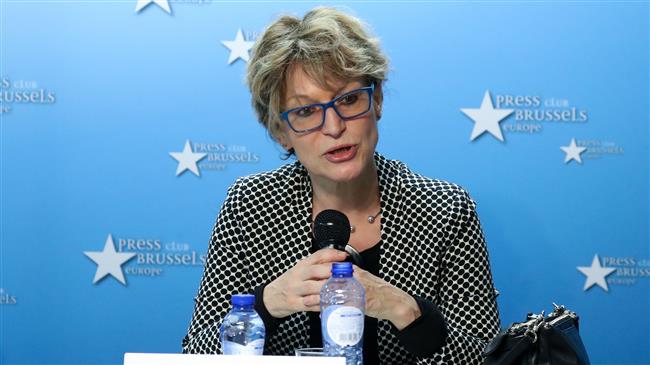US report on Khashoggi murder must reveal individuals involved: UN official
The United Nations special rapporteur on extrajudicial executions, Agnes Callamard, says a US intelligence report on the murder of Saudi dissident journalist Jamal Khashoggi must reveal the individuals involved in the killing.
On Thursday, Callmard told the Middle East Eye (MEE) news portal that those behind the murder of Khashoggi must be identified, and the possible involvement of the Saudi crown prince must be investigated too.
"Mr. Khashoggi’s killing constituted an extrajudicial killing for which State responsibility attaches," Callamard said.
"Now, we need to move to the second question: Who within the state commissioned the killing, incited the killing, failed to prevent the killing or created the conditions that made the made the killing possible?" Callamard said. "These are the questions I would expect this intelligence report to answer."
Earlier this week, Congress passed a law ordering the Director of National Intelligence (DNI) to present a report to legislators revealing details of the probe into who ordered the killing and attempted to cover it up.
Callamard said the DNI’s report should include the CIA’s classified briefings on the murder to Congress late last year - which pointed to the involvement of the Saudi crown prince.
In November last year, The Washington Post reported that the CIA had concluded that Mohammed Crown Prince Mohammed bin Salman (MBS) had personally ordered the assassination.
However, Washington has attempted to whitewash the Saudi crown prince’s role in the gruesome assassination of Khashoggi despite the CIA report.
Khashoggi – a US resident, The Washington Post columnist, and a leading critic of Crown Prince Mohammed bin Salman – entered the Saudi consulate in Turkey’s Istanbul on October 2 to obtain documents for his pending marriage, but he never left the mission.
Audio tapes that the Turkish government later shared with the world verified that he had been killed and then dismembered by 15 Saudi hitmen.
The incident sparked an international outcry and eventually a United Nations investigation was launched, but the probe failed to progress in full as the Saudi regime failed to cooperate.
Riyadh attempted to parry international condemnation by accusing 11 operatives of the murder and handing five of them death sentences. But according to the UN panel, the suspects’ trial, which was not open to the public and trial observers, was a sham that fell short of international standards.
In her earlier report in June, Callamard said it was "absolutely important" to identify the individuals responsible for the assassination, demanding that the US government declassifies and releases information that intelligence agencies have compiled on the murder.
"You need to identify and unpack the responsibilities of the state, and once you've done that, you need to turn your attention to the individual responsibility," she said.
She also reiterated her demand for an FBI investigation into the killing.
"I think whatever the DNI report highlights, the FBI has a distinct responsibility and mandate to investigate a crime committed against a resident of the United States," Callamard said.
The US intelligence report should be made public 30 days after the president signs the defense budget into law. Still, it is not uncommon for such congressionally mandated documents to go past the deadline.
The quest for holding the killers accountable will not be a short journey, Callamard said, but the issue must be kept on the agenda and in the public's attention.
"When you want justice at the level where a state is involved and where its protectors are also involved, we need to be prepared to go for a long ride… Justice demands patience and determination," Callamard said.
"Continuing to speak about it, insisting that the attempt by Saudi Arabia to buy itself a new reputation is not working, reminding the world of the fact that Saudi Arabia is now one of the largest imprisoner of journalists, reminding the world that young women activists are still in prison because they wanted to drive, that too is a part of forcing the issue of accountability."
Hamas thanks Iran, Resistance Front following achievement of ceasefire in Gaza
'Capitulation': Israeli officials and media concede Gaza defeat as truce unfolds
'Gaza has won': Social media users react to ceasefire with mix of relief, joy
Iran seeks South Korea’s assistance for AI, fiber-optic projects
VIDEO | Iran's 'Eqtedar' (Power) maneuver
Israel hits HTS military target in Syria for 1st time since fall of Assad
VIDEO | Press TV's news headlines
Israel has slaughtered 13,000 students in Gaza, West Bank
















 This makes it easy to access the Press TV website
This makes it easy to access the Press TV website